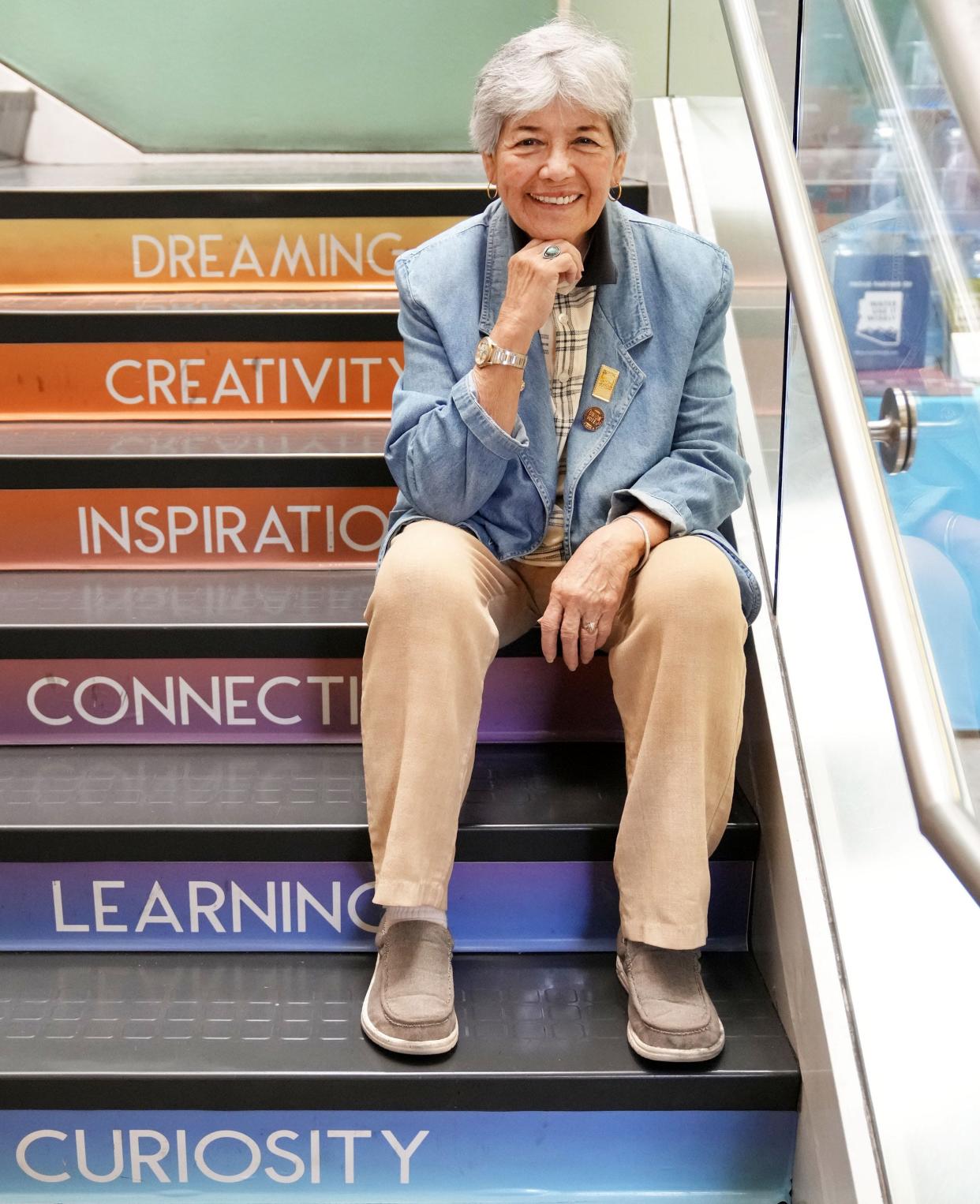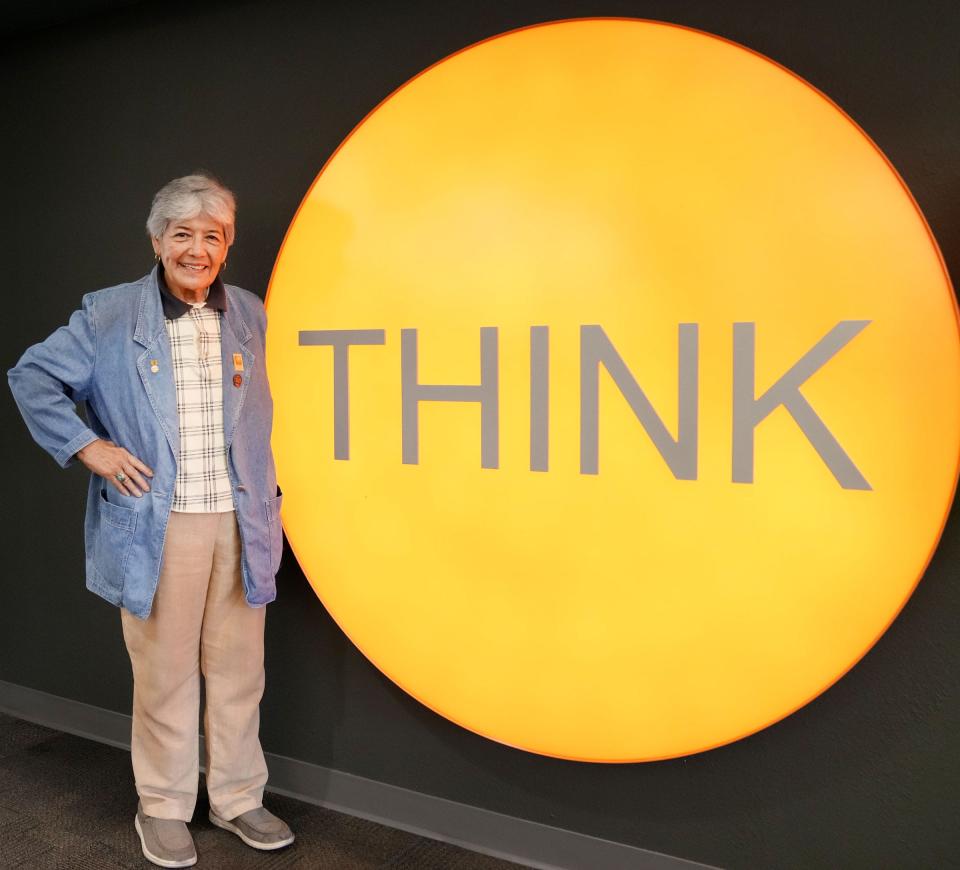How a kid from an Arizona mining town went on to create a historic Latino archive ASU

For Christine Marin, it all started on Euclid Avenue.
The small dirt road was less than a mile long, but it was home to dozens of families living in the mining town of Globe, Arizona. Throughout the 1940s and ‘50s, Marin grew up there, where children from across the neighborhood would come together to play kickball, fly kites and share meals.
Many families had immigrated from countries around the world, including Serbia, Italy and Mexico — like Marin’s family. Her brothers attended segregated schools when she was young, but at the end of the day, everyone returned home to their shared space at the Avenue.
“Our Euclid Avenue was like the United Nations Street,” she said.
Marin, who said she is still deeply connected to her small-town, mining roots, is now an archivist and professor emeritus at Arizona State University and is the founder of the Chicano/a Research Collection and Archives. Her decades-long career celebrates the history of the Latino community in Arizona and the greater Southwest region in addition to paving the way at the university for its Transborder Chicana/o and Latina/o Studies program.
She has gone on to mentor many students and publish multiple works about Latina trailblazers, civil rights movements and the history of Arizona mining towns. She led the archive for more than 35 years which has since expanded to provide historical insight both through physical documentation and online.
“ASU was like my second home,” Marin said of her work with the university.
Arriving at ASU
Through encouragement from her family, Marin moved to the Valley to begin studying at ASU under scholarships and work-study. She lived in Tempe in an all-girls dormitory on campus across the street from Hayden Library.
What Marin didn’t know at the time was that the library would become one of her first places of employment and a pivotal piece of her career in history.
“I just walked over there and applied for a job,” she said “And I got a job and it wasn't fancy.”
Marin’s work at the library consisted of hours of cataloging materials each week. She said the work not only introduced her to the importance of careful bookkeeping but gave her a space to look through hundreds of records — an opportunity she relished.
Marin continued to explore her passion for history all while supporting herself through college. She attended ASU during the 60s amid multiple social movements, including the Chicano Movement — a nationwide, Mexican American-led social movement that advocated for social and political empowerment through the identity of Chicanismo.
ASU became her second home, where she spent time teaching and researching Mexican and Chicano history in Arizona while obtaining her degrees, including a bachelor's in English and a master's and doctorate in history.

Over time, the Mexican American Student Organization at ASU, now known as MEChA — which Marin helped found and was a member of — took note of new programs being created at California universities surrounding Latino studies and archival work. Marin recalled how these same students planned to ask for their own archive, one that would allow them to put their learning to use for the community.
Before they could bring up that request, a professor who had mentored Marin approached her about becoming the first archivist presiding over a new Latino history collection.
Marin started the archive from the ground up, hiring new staff to take on the archive and crafting what it would look like. With the support of the team, she cultivated an archive that is now home to hundreds of documents.
Since 1970, the archive has expanded substantially. The collection includes photos, books, newspaper clippings and familial records to paint a picture of the Latino community across Arizona. The oral histories preserved in the collection serve as primary resources for many students and experts in the ASU community.
Legacy across campus, community
Since Marin's arrival to campus, ASU has grown significantly, becoming one of the largest universities in the country with more than 50,000 students enrolled at the Tempe campus. The school is now a Hispanic-serving institution, meaning more than a quarter of the school’s undergraduate population identifies as Hispanic or Latino.
Irasema Coronado, the director of the School of Transborder Studies, said much of the university’s progress in serving the Latino community can be credited to Marin’s dedication as an educator and community leader.
When Coronado first arrived to ASU several years ago, Marin was the one who took her on a tour of the campus. She pointed out where activist Cesar Chavez visited and where the first meetings were held for the Mexican American Student Organization.
“She gave you this whole history of ASU from the Chicano perspective,” Coronado said.
In 1994, the Chicano/Latino Faculty and Staff Association launched the Dr. Christine Marin Staff Award, which "recognizes an ASU staff member who exemplifies: passion of their profession, Outreach to Hispanic youth, Leadership at ASU/the community, and Community service/involvement," in honor of Marin's efforts.
Today, the Chicano/a Research Collection and Archives is directed by Nancy Godoy, who was trained by Marin before she departed from the role. Marin is honored for her activism through multiple awards including the Outstanding Faculty Award from ASU and the Tribute To Women Award from YWCA of Maricopa County.
“Chris is a force of nature,” Coronado said. “She's just so energetic and so enthusiastic, and she really loves this university and this community. She really does.”
Helen Rummel covers higher education for The Arizona Republic. Reach her at hrummel@azcentral.com. Follow her on X, formerly Twitter: @helenrummel.
This article originally appeared on Arizona Republic: How Christine Marin carved space at ASU to preserve Latino stories

